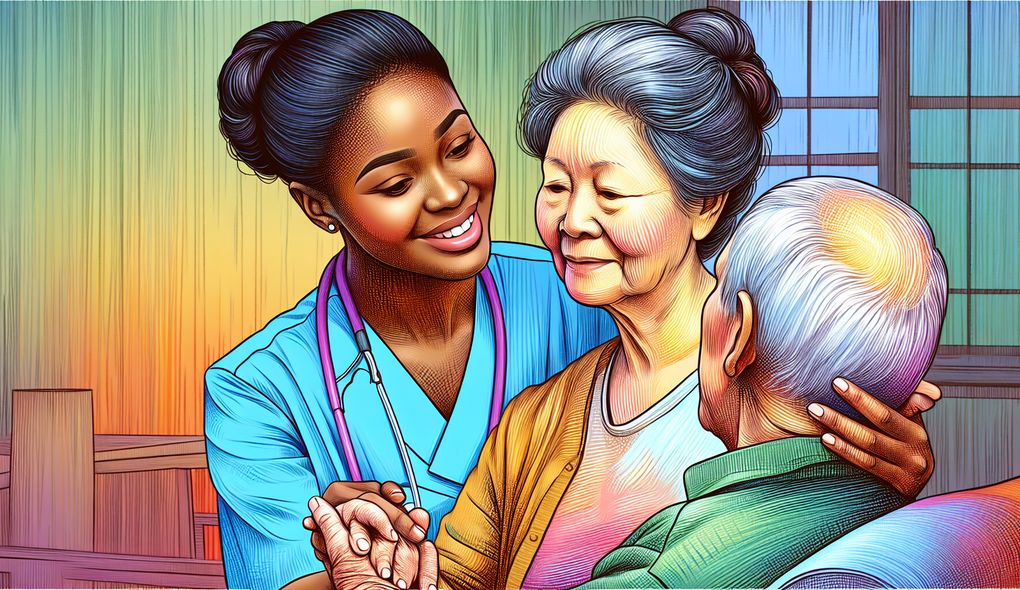How do you approach the monitoring and reporting of patient condition? Can you provide an example?
INTERMEDIATE LEVEL

Sample answer to the question:
When it comes to monitoring and reporting patient condition, I approach it with great attention to detail and a focus on communication. For example, in my previous role as a hospice nurse, I would regularly assess the vital signs and symptoms of my patients, such as heart rate, blood pressure, and respiratory rate. I would also conduct thorough physical examinations to check for any changes or concerns. Additionally, I would closely observe the patients' behavior, pain levels, and overall well-being. To ensure accurate reporting, I would document all my findings in the patient's medical records and promptly report any significant changes to the healthcare team.
Here is a more solid answer:
In my approach to monitoring and reporting patient condition, I prioritize exceptional clinical skills, effective communication, and efficient organization. For instance, during my time as a hospice nurse, I would perform thorough assessments on my patients, including monitoring vital signs, conducting physical examinations, and assessing pain levels. I would document and track these findings in the patients' electronic health records meticulously. Additionally, I would regularly communicate with the healthcare team to report any changes in patient condition, ensuring that everyone involved in the patient's care is aware of their status and needs. This collaborative approach helped to facilitate timely interventions and adjustments to the care plan, providing the best possible outcome for the patient.
Why is this a more solid answer?
The solid answer improves upon the basic answer by providing more specific details and examples of the candidate's approach to monitoring and reporting patient condition. It also demonstrates the required skills and abilities mentioned in the job description, such as clinical skills, communication, and organization. However, it could still benefit from further elaboration on critical thinking and problem-solving skills.
An example of a exceptional answer:
When it comes to monitoring and reporting patient condition, I adopt a comprehensive and proactive approach that encompasses all aspects of care. As a hospice nurse, I would not only assess vital signs and conduct physical examinations but also prioritize listening to my patients and their families. Through active listening, I would gather valuable insights into the patient's condition, emotional well-being, and any concerns they may have. This holistic approach allowed me to provide personalized care and address any potential issues promptly. Additionally, I would regularly review and analyze the patient's medical records, identifying trends or patterns that may require further attention. By staying vigilant and utilizing my critical thinking skills, I could proactively adjust the care plan to optimize patient comfort and symptom management. Overall, my comprehensive approach to monitoring and reporting patient condition ensured a high standard of care and improved patient outcomes.
Why is this an exceptional answer?
The exceptional answer goes beyond the solid answer by incorporating a holistic approach to monitoring and reporting patient condition. It emphasizes the importance of active listening, patient-centered care, and critical thinking in identifying and addressing patient needs. The answer demonstrates a deep understanding of the responsibilities and skills required for the job.
How to prepare for this question:
- Familiarize yourself with common vital signs and their normal ranges.
- Review different methods and tools for assessing pain levels and comfort.
- Practice active listening to enhance your communication and understanding of patients' needs.
- Develop a system for organizing and documenting patient information effectively.
- Reflect on past experiences where you demonstrated critical thinking and problem-solving skills in patient care situations.
What are interviewers evaluating with this question?
- Clinical skills in end-of-life care management
- Communication and interpersonal skills
- Organizational and time-management skills
- Ability to work independently and as part of a team
- Critical thinking and problem-solving skills

